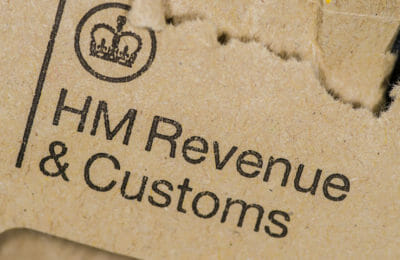Do you hold any crypto assets? If so, have you paid tax on any income or gains from them? If not, you need to be aware than HMRC is continuing to crack down on crypto tax.
Back in November 2023, HMRC published new guidance on paying tax on gains from crypto assets. In this post, we look at what HMRC means by crypto assets, the tax you may need to pay and details of any penalties you may be liable for.
What are crypto assets?
HMRC defines three categories of crypto assets. They are:
- Exchange tokens (such as Bitcoin)
- NFTs (non-fungible tokens)
- Utility tokens
When do I have to pay a crypto tax?
If you sell a crypto asset and you make a gain, you may have to pay Capital Gains Tax. Similarly, if you make a gain when exchanging tokens for a different crypto asset or use a token to pay for goods or services, you may be liable for CGT. The same applies if you give tokens to someone else, unless they are your spouse or civil partner.
Each year you have a CGT tax-free allowance. However, this has changed recently. The allowances for recent and upcoming financial years are as follows.
- 2018 to 2019: £11,700
- 2019 to 2020: £12,000
- 2020 to 2023: £12,300
- 2023 to 2024: £6,000
- 2024 to 2025: £3,000
- 2025 to 2026: £3,000
These allowances are for individuals, personal representatives and trustees for disabled people. Other trustees have an allowance that is half of the amounts listed above.
How do I work out how much crypto tax to pay?
Normally, you need to calculate the difference between what you paid for a token and what you sold it for. However, if you got tokens for free, you’ll need to use the market value they had when you received them.
The rules are slightly different if you sell tokens within 30 days of buying them. In this case, the rules for working out the cost are the same as the rules for shares.
I haven’t paid crypto tax. What do I do next?
If you haven’t paid tax on gains from crypto assets over recent years, you should make a voluntary disclosure.
The type of disclosure you make will depend on whether you didn’t pay tax:
- Despite taking reasonable care
- Because you did not take care
- Because you deliberately chose not to
If you took reasonable care, you’ll need to pay for the previous four years. If you didn’t take care, you’ll need to pay what you owed over the previous five years. However, if you deliberate chose not to pay CGT, you’ll have to pay for up to a maximum of twenty years.
In addition to the unpaid tax, you’ll also need to pay interest and penalties. HMRC provides a form that allows you calculate penalties. When you fill in the disclosure form you’ll need to explain which penalty you have applied. If HMRC thinks you have applied the wrong penalty, they may investigate your tax affairs.
Once HMRC has considered your disclosure, you’ll be sent a payment reference number. You must then pay what you owe within 30 days.
Can THP help me with CGT?
If you need help calculating what you owe from crypto asset gains, our accountants would be delighted to help you. Simply fill in the form below to get in touch or call us today.
About Jon Pryse-Jones
Since joining THP in 1978, Jon Pryse-Jones has been hands on with every area of the business. Now specialising in strategy, business planning, and marketing, Jon remains at the forefront of the growth and development at THP.
An ideas man, Jon enjoys getting the most out of all situations, “I act as a catalyst for creative people and encourage them to think outside the box,” he says, “and I’m not afraid of being confrontational. It often leads to a better result for THP and its clients.”
Jon’s appreciation for THP extends to his fellow team members and the board. “They really know how to run a successful business,” he says. He’s keen on IT and systems development as critical to success, and he continues to guide THP to be at the cutting edge and effective.
Read More











